Tell Me Why #4: Why do human beings speak so many languages?
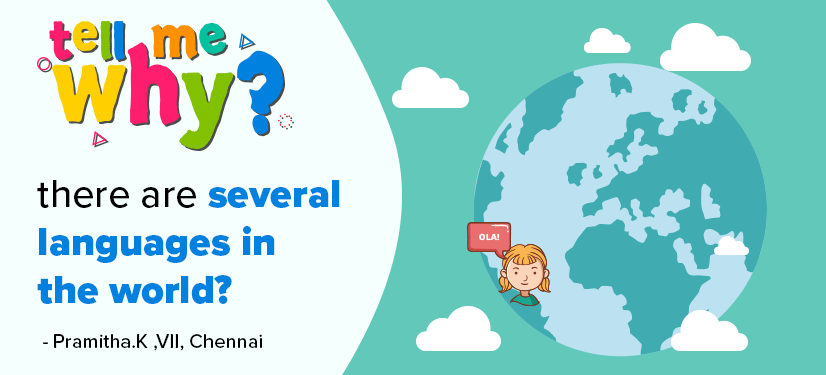
Welcome to BYJU’S ‘Tell Me Why…’ where we explain to you the ‘why’ behind anything and everything that’s been on your mind! So go ahead and ask us a question that starts with ‘Tell Me Why’. We’ll pick the most intriguing questions and feature them along with an illustrated answer on The Learning Tree Blog.
To ask your question, fill up the form here:
Submit a ‘Tell me Why’ question
Today we are answering a very interesting question asked by class 7 student, Pramitha K from Chennai. She wants to know:
Why There Are Several Languages In The World?
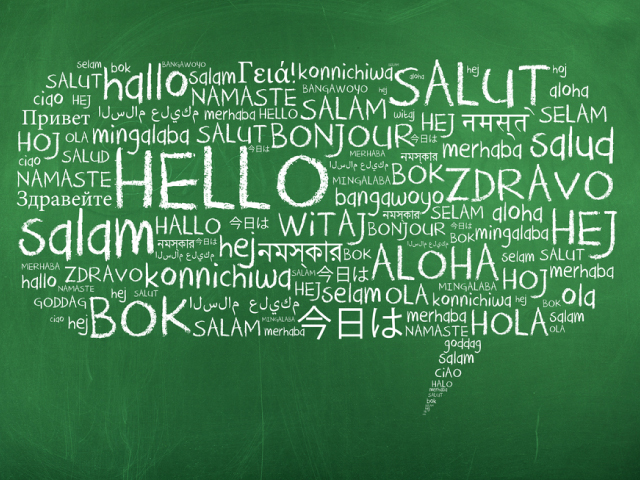
You would be surprised to know that there are approximately 7,000 languages in the world today!
But Why? Why do people speak different languages in the world?
It’s an ancient question, almost as old as humanity itself. Explanations for why people speak so many languages are common in myths from cultures around the world.
Stories Of How Languages Developed
You might know the tale of the Tower of Babel (have a look at a famous painting of it, below).
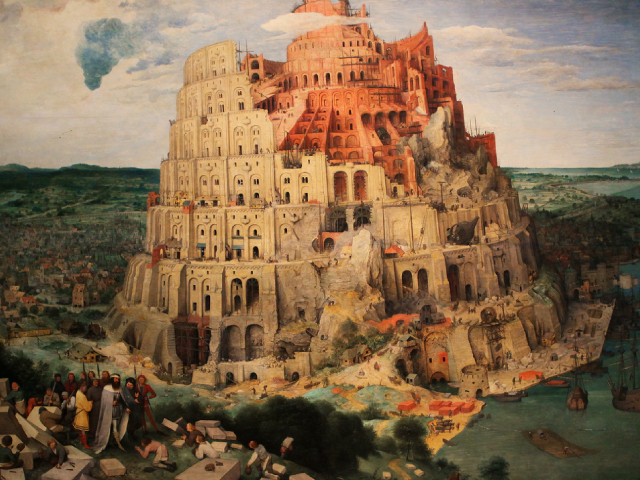
In this story from the Bible, all humans originally spoke a single language. But God got angry when these humans became proud and tried to build a tower to reach heaven. This wasn’t in God’s plan. So he made humans speak different languages and scattered them across the Earth.
In this way, humans were divided into different groups, speaking different languages.
In another story common to many cultures of the indigenous people of North America, an old coyote created humans.

Coyote canoeing, in a traditional story
At first, these humans spoke a single language (like in the Babel story). But a younger coyote argued to the old coyote that humans had a talent for warfare. The young coyote convinced the older one to make humans speak different languages. That way, humans could misunderstand one another — this would lead to war and humans could show off their talent.
There are many, many more stories like these throughout the world!
More recently, scientists and linguists (people who study languages) have tried to answer this question on the basis of evidence. The truth is, we don’t have one exact reason for why people speak so many languages.
That’s probably because there isn’t one. Instead, diversity in languages is a response to many different events throughout history. And, interestingly, there’s a little bit of truth in those earlier stories of castles and coyotes.
We may not have an answer, but here are some important factors that may have led to many languages being formed.
Language May Have Developed In More Than One Place
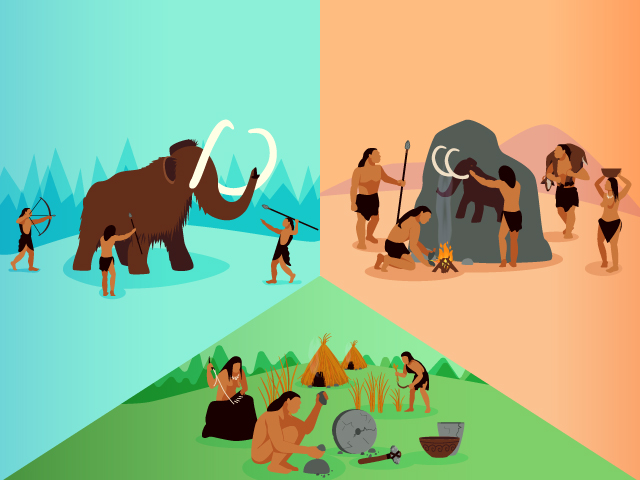
Did humans ever speak just one language? We don’t know. There are two schools of thought:
- Monogenesis, which holds that all languages evolved from a single ancestral language. Modern language experts have found no evidence of it, but it’s been noted that there are lots of similarities between the oldest languages – Greek, Latin and Sanskrit. This may mean that all modern languages share a common source.
- Polygenesis, which holds that multiple ancient languages developed independently.
So there may have been quite a bit of language diversity right from the start. But even if there was a single common human language to start out, humans would still speak thousands of different languages. That’s because . . .
People Move, and Languages Change
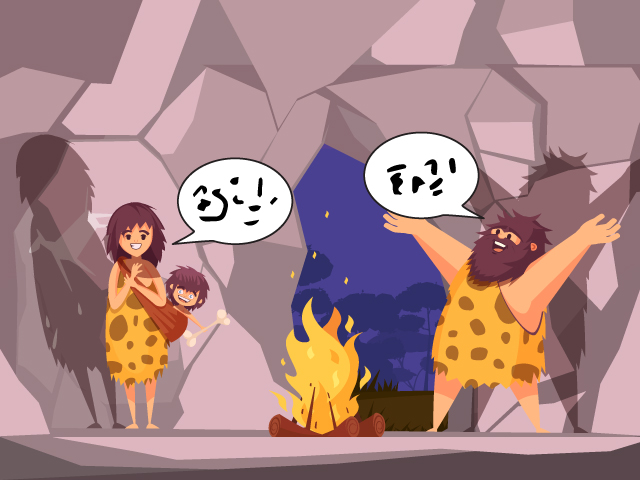
In the Tower of Babel story, God separates people in groups and makes them travel in different directions in the world. In fact, we know from archaeological digs that humans have been on the move for thousands of years — as long as we’ve been human!
What you need then to create different languages are two magic ingredients: distance and time.
Now, imagine you have a tribe of people who speak a common language. You take this tribe and split it in two. One group goes east and the other goes west. Eventually they lose contact with each other, but their language remains common for a while.
Over time though, the two groups live through different experiences and encounter different things that influence their language. They come across new objects and ideas and create new words for them independently.
Some old words are lost, pronunciations change as certain sounds become harder or softer. Words slowly shift as they take on different meanings.
Now, after several hundred years, if the tribe is reunited, they will find it difficult to communicate with each other. That is because their language has evolved into two different ones during the years of separation.
English as We Know it Today
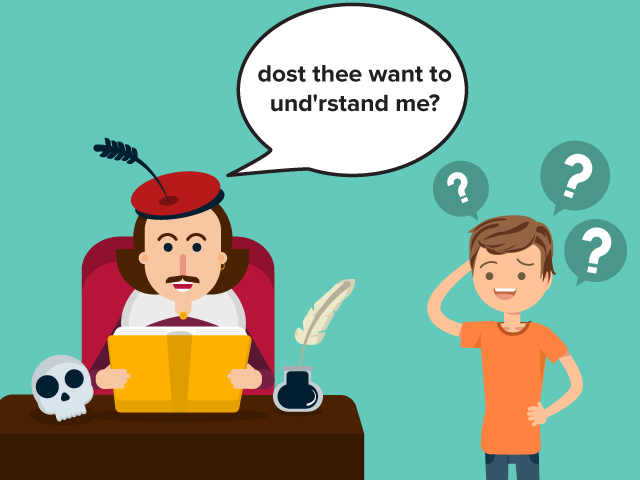
English was born in the same way. The Old English would sound as foreign to you as any modern language that you don’t know. For example, urne gedæghwamlican hlaf is Old English for “our daily bread”.
Have you ever tried reading Shakespeare? English has changed so much over the centuries that it’s difficult for modern English speakers to “get” Shakespeare without translation into modern English.
War Forms or Kills Languages
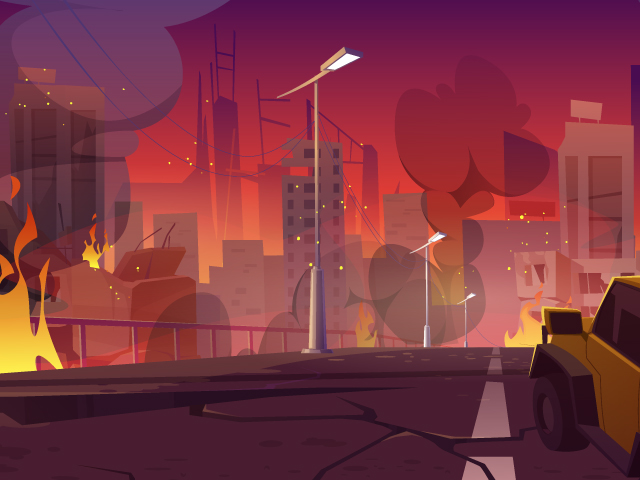
The coyote story points to how war is an important aspect in language formation. This is in fact true as linguists confirm that warfare has undeniably affected the languages that people speak today.
War can lead to the formation of new languages, or to the extinction of established languages. War can divide populations that once spoke a common language, and if they remain divided for centuries, each set of people will develop new languages. But war can also lead to language death, as the conquered are forced to speak the language of their conquerors.
For example, In India, during the Mughal rule, Persian was the court language and was widely spoken by people in India.
When the British colonized India, Persian was replaced by English in 1832 and the British made English as the official language of India.
While wars have affected languages, the opposite is also true: differences in languages have led to misunderstandings, wars and in some cases, even formation of new countries — Just the way the little coyote predicted!
For example, Bangladesh fought for and won its independence from Pakistan on the basis of preserving the right to speak its own language.
Geography

But none of the reasons above explain why languages are distributed so unevenly around the world. For example, Europe has around 225 languages, depending on how you count them. But tiny Papua New Guinea Island has at least 820 languages!
This is largely because of the island’s unforgiving geography. Mountains, forests, rivers, and swamps keep the inhabitants divided into many small tribes. These tiny groups have been so isolated for so long that they’ve developed different languages in many cases.
Does It Matter Why There Are So Many Languages?
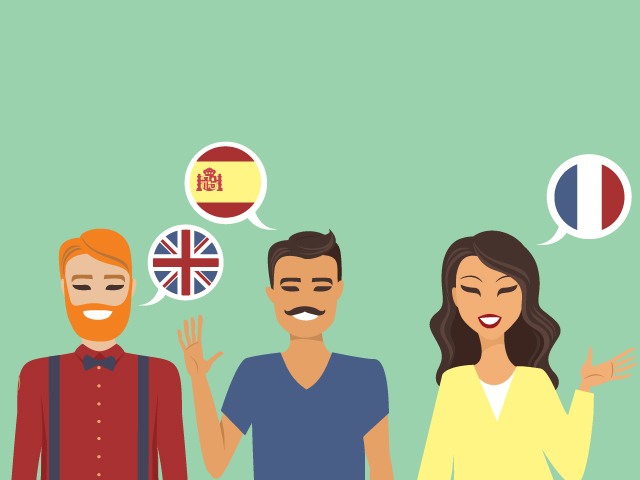
At the end of the day, the many languages that still exist in the world are all very important.
They are important because they bring communities and cultures together. They make the world diverse and beautiful. They preserve knowledge and connect people to their history.
For these reasons, and many more, all the different languages are worth preserving by not letting any language die, regardless of its origin and how it came to be. Speaking of languages do you know why we have silent letters in English?
So there you go! We hope our answer satiated your curiosity!
To submit your own ‘Tell Me Why’ question, fill up the form here
Also read about the Importance of preserving native language